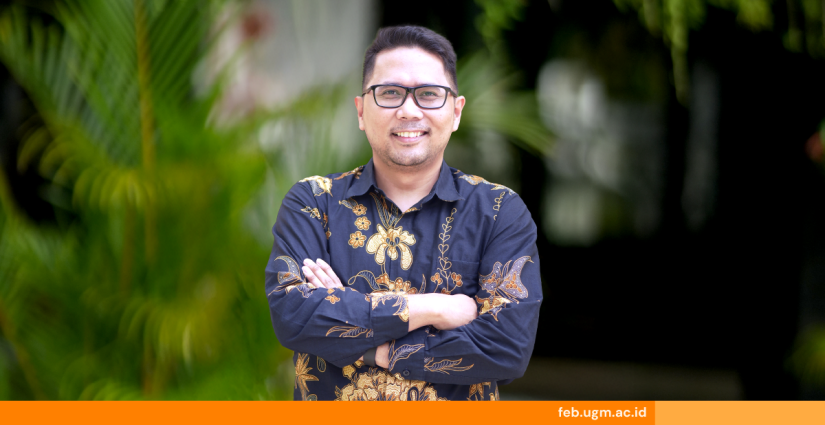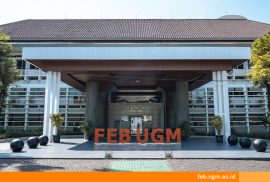
By: Wisnu Setiadi Nugroho
Department of Economics, FEB UGM
Head of Equitable Transformation for Alleviating Poverty and Inequality Working Group (EQUITAS)
As Indonesia progresses toward upper-middle-income status, one critical metric remains stuck in the past: our poverty line. For over two decades, Indonesia has relied on a threshold set by the Central Statistics Agency (BPS), which calculates the minimum spending needed to meet basic calorie requirements and essential non-food needs. This approach, unchanged since 1998, provides consistency for statistical tracking. But the question is no longer just how many calories a person consumes, but whether our poverty line truly captures what it means to live a decent life.
The BPS Poverty Line: A Narrow Lens
BPS uses the Cost of Basic Needs (CBN) method, focusing heavily on caloric sufficiency. It estimates the minimum monthly expenditure to meet calorie needs and essential non-food goods. As of September 2024, the poverty line stood at IDR 595,242 per capita, comprising IDR 443,433 for food (74.5%) and IDR 151,809 (25.5%) for non-food items. Under this measure, 8.57% of Indonesians are classified as poor.
In practice, this means someone mainly eating rice, oil, and instant noodles could be deemed “non-poor,” despite lacking dietary diversity or essential nutrients. While the CBN offers a consistent statistical benchmark, it is increasingly seen as too narrow. It overlooks broader welfare aspects, such as nutritional quality, access to healthcare, and basic living standards. It risks masking vulnerabilities and fails to reflect the daily hardship of millions who technically escape poverty but remain exposed to poor health, limited opportunities, and social exclusion.
The World Bank Line: Globally Comparable, Locally Misunderstood
The World Bank’s international poverty line—US$2.15/day (in 2017 PPP terms)—is widely used for global comparisons. However, it too has limitations. Many mistakenly interpret it as reflecting local prices when it actually uses purchasing power parity (PPP), which adjusts for price level differences across countries. According to the World Bank’s 2024 estimates, 1% of Indonesians live below the US$2.15/day line. Using a PPP conversion rate of IDR 5,400 per US$1 translates to around IDR 11,600 per day. When applying the lower-middle-income line (US$3.65/day), the poverty rate rises to 11.4%. Most strikingly, under the upper-middle-income line (US$6.85/day) — roughly IDR 37,000/day — 50.1% of Indonesians fall below the threshold. This wide variation highlights how much poverty estimates depend on the standard used.
Moreover, the global PPP basket is designed to reflect minimum living standards across countries. But what counts as “basic” in Jakarta may differ significantly from Kampala or Kathmandu. A staple food in one country may be a luxury in another. Costs for items like protein, fruit, or fuel vary widely. This raises an important point: while international lines are useful for comparisons, they can be misleading if used as the basis for local poverty assessments. Indonesia needs a standard that reflects its realities.
A Line That Matches Our Aspirations
There is growing recognition that poverty lines should reflect not just survival, but dignity and well-being. As Indonesia advances economically, several scholars argue that our poverty measurement must evolve accordingly.
Arief Anshory Yusuf (2024) points out that Indonesia’s official poverty threshold remains comparable to that of low-income countries despite our classification as upper-middle income. This signals a disconnect between our economic achievements and how we measure hardship. He suggests raising the threshold to align with the actual cost of living and social expectations. Kristi Mahrt (2024) from the International Food Policy Research Institute (IFPRI) offers a compelling alternative: a nutrition-sensitive poverty line. Drawing from the Guidelines for Balanced Nutrition (Minister of Health Regulation No. 41/2014), she proposes a line that ensures adequate intake across all major food groups — calories and proteins, vegetables, fruits, and healthy fats.
This approach would raise the per capita daily poverty threshold from IDR 20,000 to about IDR 30,000–32,000. The cost increase reflects the reality that animal-source foods are twice as expensive, and fruits can cost up to nine times more than basic staples. Yet it also offers a more accurate picture of what it takes to avoid stunting, wasting, and hidden hunger — all persistent problems in Indonesia.
Toward a More Meaningful Measure
Some may argue that raising the poverty line would simply inflate poverty figures. But this concern misses the point. The goal of poverty measurement is not to produce flattering statistics but to reflect reality. A higher line does not create more poor people — it acknowledges the depth of hardship that current metrics overlook.
Updating the poverty line does not require discarding the existing CBN method. It can still be used for continuity and historical comparisons. However, it should be complemented by more comprehensive measures that factor in nutrition, health, and other dimensions of well-being. Just as we track both GDP and GNI, we can track calorie-based and nutrition-sensitive poverty rates in parallel. Ultimately, updating our poverty line is not just a technical issue but a moral and policy imperative. To ensure no one is left behind, our measurement tools must reflect the real cost of living, not just the cost of surviving.
Indonesia has made significant progress in reducing poverty. But to sustain that momentum — and meet our goals for human development, equity, and inclusive growth — we must align our definitions and data with the daily realities Indonesians face. Only then can we claim to be building a society where everyone has a chance not just to survive, but to thrive.
*As published in The Jakarta Post (May 5, 2025) and Tempo.co (May 3, 2025)




